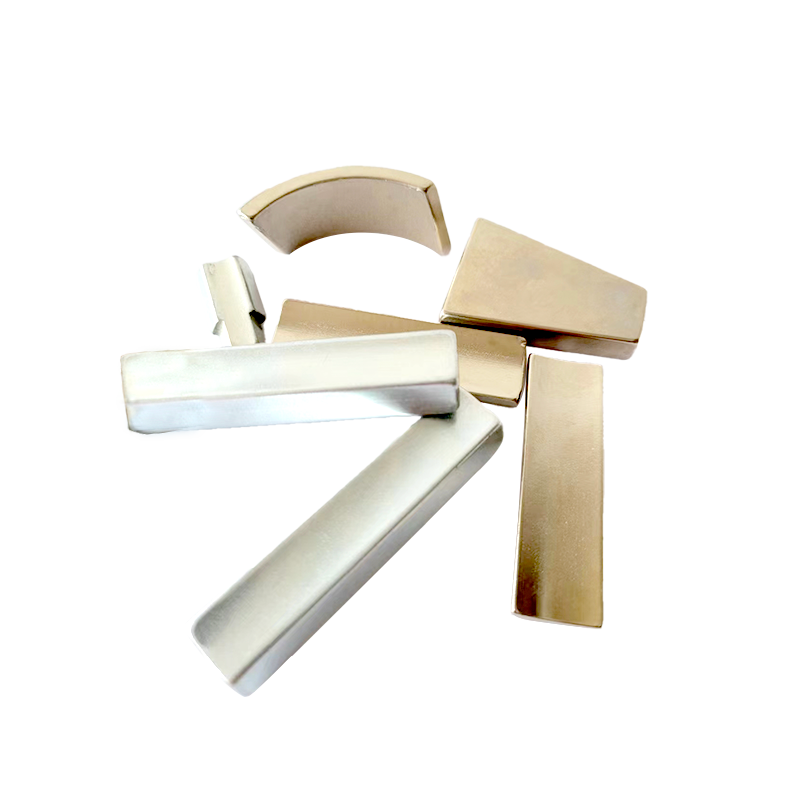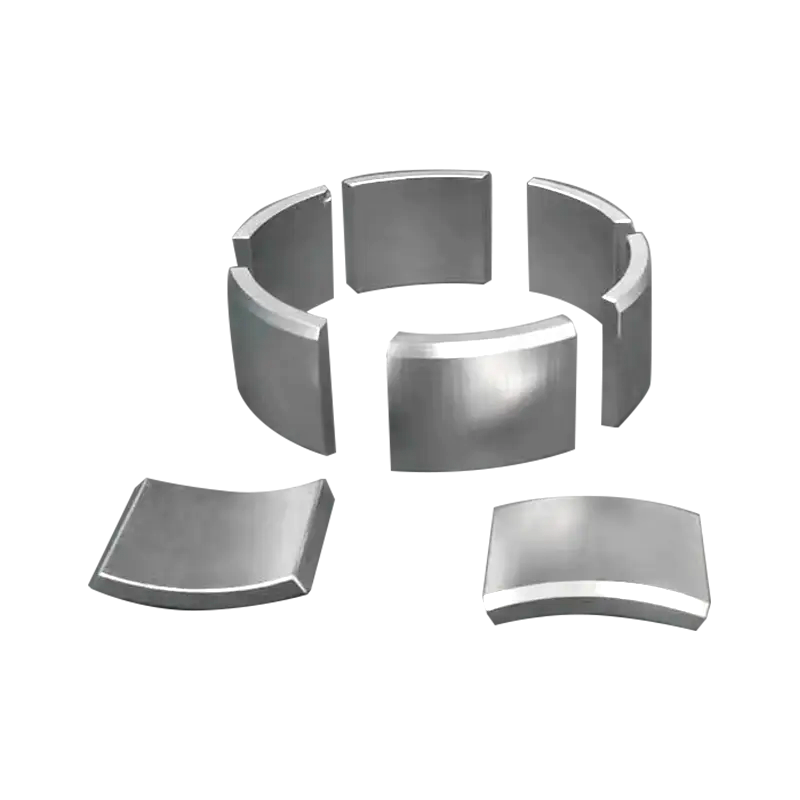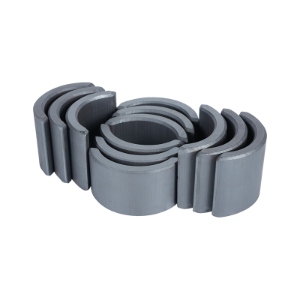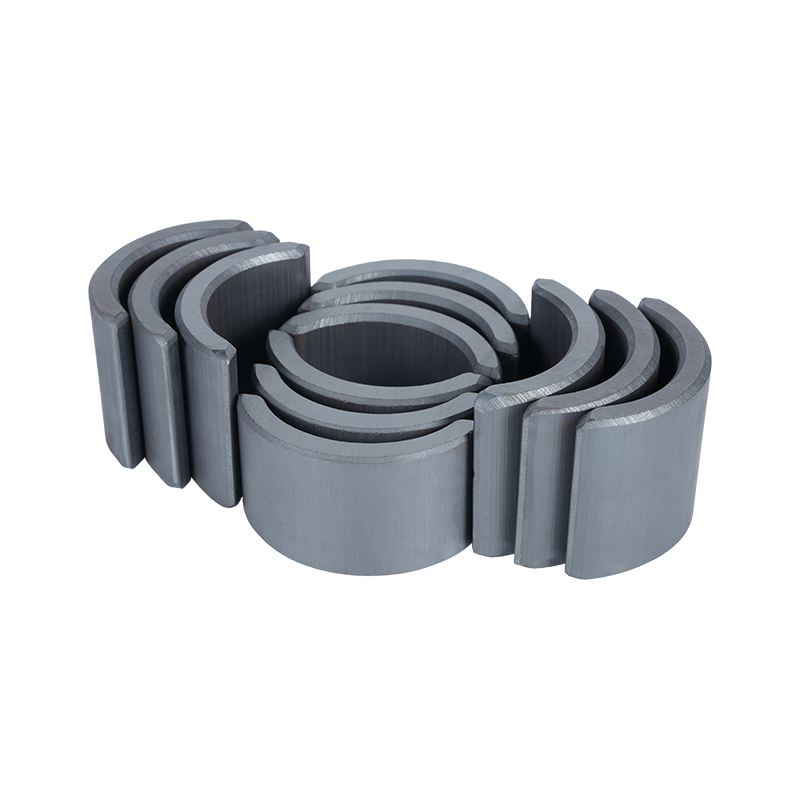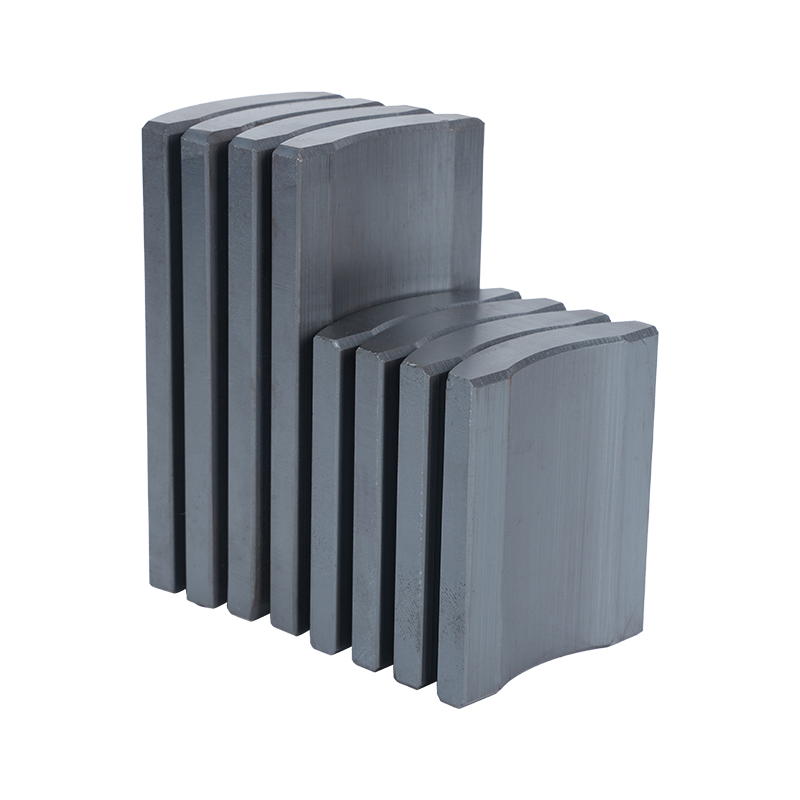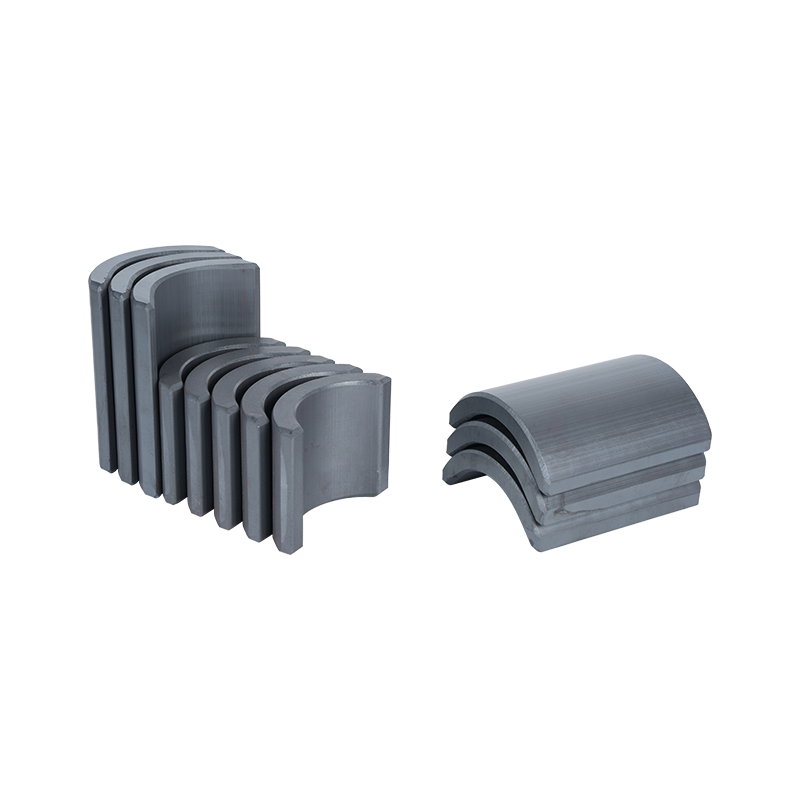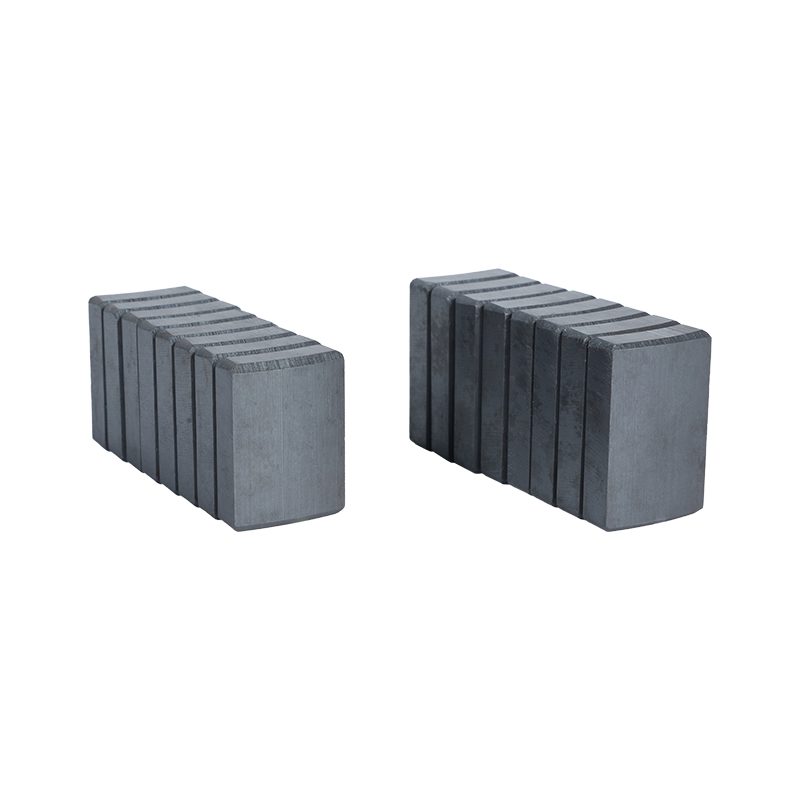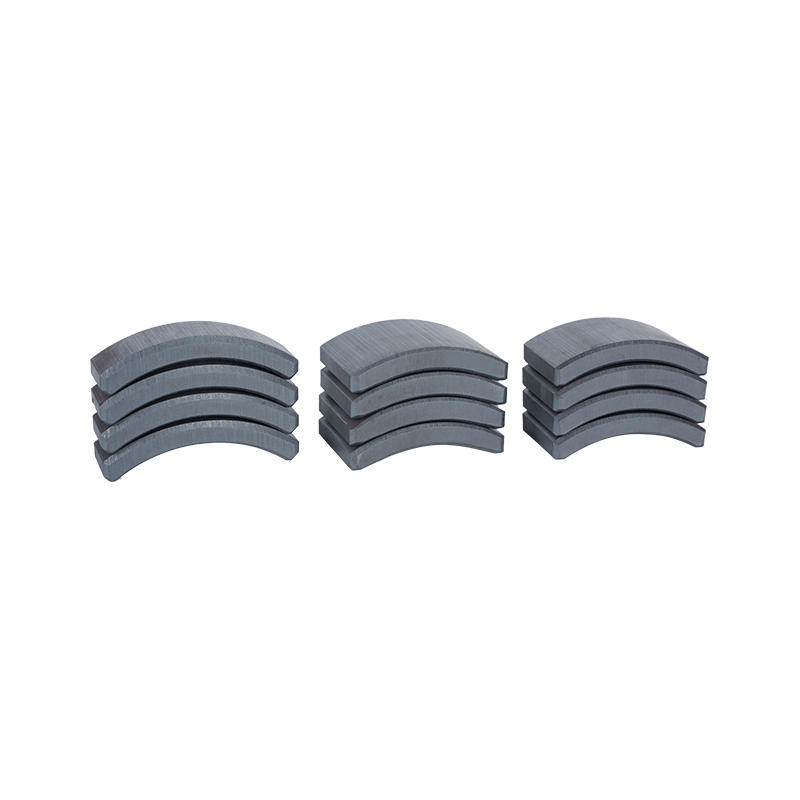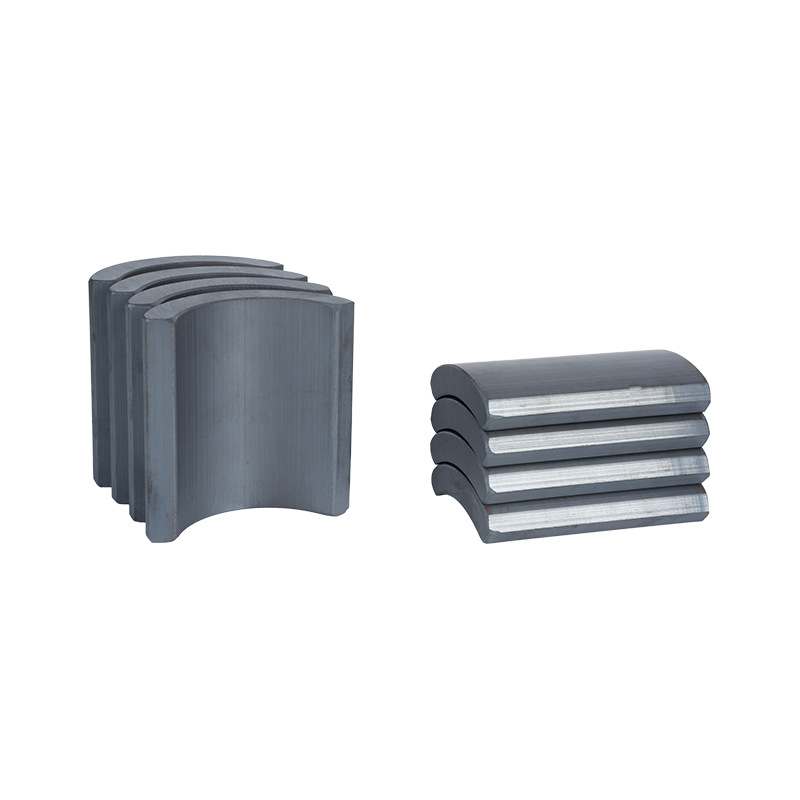Dong Yang TianQi Magnetic Segment Co.,Ltd.(formerly Shuangyang Magnet Tile) is a professional enterprise specializing in the production of motor magnet tiles
Search by posts
Categories
Popular products
Contact Us
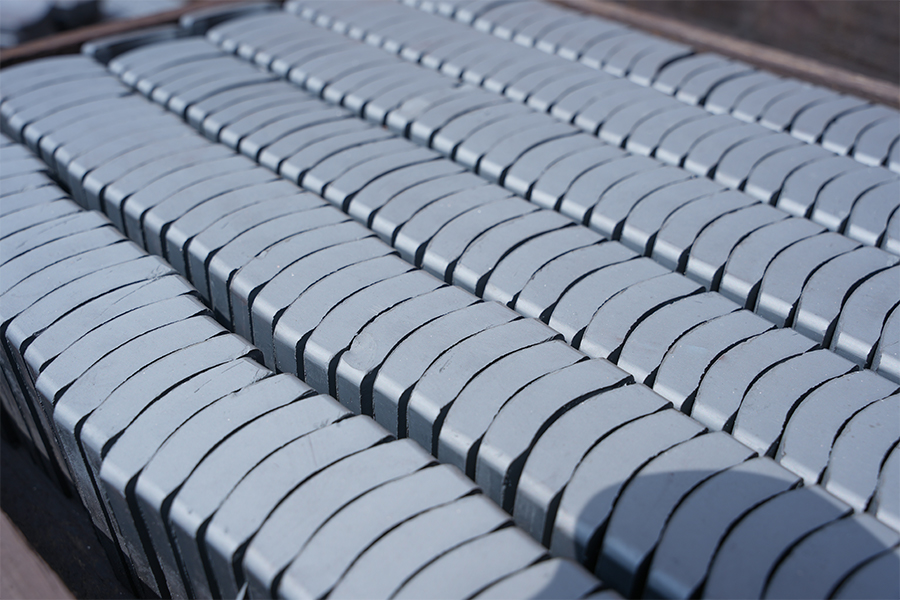
Industry News
 By Admin
By Admin
The Journey of Ferrite Magnetic Tiles: From Industry to Home
Ferrite magnetic tiles may seem like a niche product, but they play an important role across a variety of fields. From industrial machinery to household appliances, these versatile magnetic tiles have quietly shaped many aspects of modern technology. In this article, we’ll explore the fascinating journey of ferrite magnetic tiles, highlighting their development, the differences in their application across industries, and their shared benefits in different contexts.
The Industrial Origins of Ferrite Magnetic Tiles
Ferrite, a ceramic compound of iron oxide and additional metallic elements, has been a staple in the industrial sector for decades. Ferrite magnetic tiles, in particular, are known for their strong magnetic properties and resistance to corrosion, making them a reliable material in heavy machinery, motors, and transformers. Their high magnetic permeability and low cost have made ferrite the go-to material for industries looking for durable and cost-effective solutions.
In industrial settings, ferrite magnetic tiles are used in machines that require large, stable magnetic fields. Their ability to maintain performance in high temperatures and resist demagnetization makes them good for motors and generators. These tiles are often installed in machines where their magnetic properties help convert electrical energy into mechanical work.
Transitioning to Household Appliances
As technology evolved, the benefits of ferrite magnetic tiles began to extend beyond heavy industrial use, finding their way into household appliances. Today, many household appliances contain these magnetic tiles, although their role is much less visible compared to industrial machines. Ferrite tiles are found in everything from refrigerator doors to washing machines, where their magnetic properties are used to improve functionality and efficiency.
In household appliances, the size and shape of ferrite magnetic tiles can vary greatly depending on the application. For instance, in refrigerators, magnetic strips containing ferrite are used to create a tight seal around the door, ensuring that cold air stays inside and energy consumption is reduced. In washing machines, these tiles help to manage the motor’s efficiency, making the appliance more energy-efficient and durable.
Cleaning Machine Magnetic Tiles
The transition of ferrite magnetic tiles into the household appliance market is a testament to their adaptability. Their affordability, along with their magnetic strength, has made them an essential part of everyday appliances, often without consumers realizing it.
Key Differences in Industrial and Household Applications
While ferrite magnetic tiles serve important roles in both industrial machines and household appliances, there are notable differences in how they are applied in these fields. In industrial contexts, the tiles are often larger, more robust, and designed to handle bad conditions, including high temperatures and pressure. The magnetic fields they produce are generally stronger, ensuring that industrial processes, such as those in motors or transformers, run smoothly.
On the other hand, in household appliances, the focus is more on compactness and energy efficiency. Ferrite magnetic tiles in these devices are smaller, but their magnetic properties are just as important. For example, the small magnetic tiles in door seals are critical for keeping refrigerators energy-efficient. In washing machines, compact ferrite magnets help reduce the energy consumption while ensuring the appliance runs quietly and efficiently.
Despite these differences, the core advantages of ferrite—its cost-effectiveness, durability, and magnetic strength—remain consistent, making it an indispensable material across sectors.
Shared Benefits Across Different Sectors
Whether in heavy industry or your everyday kitchen, ferrite magnetic tiles offer a number of shared advantages. First and foremost is their affordability. Ferrite is a low-cost material to produce, making it accessible for a wide range of applications. This affordability has allowed companies to integrate ferrite into both large-scale industrial projects and consumer-level household appliances without breaking the bank.
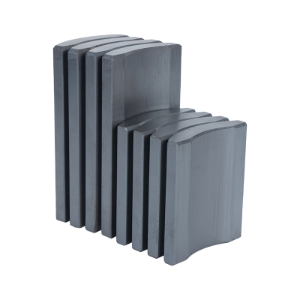
Floor Washing Machine Magnetic Tiles
Durability is another key benefit. Ferrite magnetic tiles are highly resistant to corrosion, meaning they last longer even when exposed to moisture or bad conditions. This durability is important in both industrial and household settings, where the tiles are often subjected to wear and tear over long periods.
Lastly, the magnetic strength of ferrite, while not as powerful as rare-earth magnets like neodymium, is more than sufficient for applications. Whether in a refrigerator door or an industrial motor, ferrite magnetic tiles provide the necessary magnetic force to get the job done.
The journey of ferrite magnetic tiles from the industrial sector to household appliances highlights their adaptability and essential role in modern technology. While their applications may differ, the common benefits of ferrite—affordability, durability, and magnetic strength—remain constant across sectors. Whether powering heavy machinery or making your fridge more efficient, ferrite magnetic tiles are the hidden heroes that make our world run smoothly.


